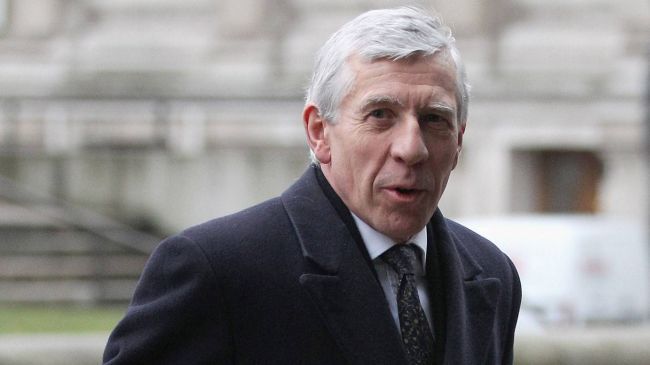 Former Home Secretary will earn £12,500 a year serving as an adviser to the Eurasian Council on Foreign AffairsJack Straw has come under fire from human rights groups after accepting a part-time job paid for by the government of Kazakhstan, a coutnry which has been ruled by the same man since 1989, and where freedom of speech is heavily restricted.
Former Home Secretary will earn £12,500 a year serving as an adviser to the Eurasian Council on Foreign AffairsJack Straw has come under fire from human rights groups after accepting a part-time job paid for by the government of Kazakhstan, a coutnry which has been ruled by the same man since 1989, and where freedom of speech is heavily restricted.
According to the most recent Register of Members’ Interests, the former Home Secretary will earn £12,500 a year serving as an adviser to the Eurasian Council on Foreign Affairs (ECFA), which was set up using a generous grant from the Kazakhstan government, independent.co.uk reports.
The Council, described as “a forum for discussion of Central Asia’s relationship with the European Union”, had its first year of running costs paid for by Kazakhstan’s Ministry of Foreign Affairs. Erlan Idrissov, the country’s Foreign Minister, is the Council’s honorary president.
Writing on the Council’s website, its founding director, former Kazakh diplomat Rauan Kenzhekhanuly, said its first task would be to create “a number of informative and engaging publications” about Kazakhstan’s economy and culture to present to “the venerable institutions and policymakers of the European Union”.
Mr Straw, who served as Home Secretary and Foreign Secretary under Tony Blair’s government, took up the post on 12 November last year and is expected to carry out around 40 hours of work in the role. But human rights groups questioned his involvement last night.
Allan Hogarth, Amnesty International UK’s head of policy and government affairs, said: “Kazakhstan has an atrocious record of torturing criminal suspects, banning or arresting peaceful protesters, and clamping down on journalists and bloggers, and Jack Straw’s role with the ECFA ought to reflect that.
“We’d like to see Mr Straw making it very clear that the Eurasian Council group will be vocal on the serious human rights issues afflicting Kazakhstan. Oil and gas-rich countries like Kazakhstan know full well that their wealth can often buy them positive public relations. The former Foreign Secretary mustn’t allow himself to become a PR mascot for the authoritarian government.”
David Mepham, the UK director of Human Rights Watch, added that the current situation in Kazakhstan was “very poor”. He said: “Freedom of assembly, speech and religion are all heavily restricted, workers’ rights protections are inadequate and have been further diminished by new legislation. Government critics – including a key opposition leader – have been imprisoned after unfair trials, and torture is commonplace in detention.”
Two Conservative politicians have also agreed to serve on the advisory board alongside Mr Straw. They are Peter Lilley, the party’s former Deputy Leader, and former Chancellor Lord Lamont.
Lord Straw is not the first New Labour politician to court controversy by working with the Kazakh government. Mr Blair has been employed as an adviser to President Nazarbayev, while Lord Mandelson has spoken at events organised by the Kazakh investment company Samruk-Kazyna.
Last summer, it emerged that Mr Blair had offered PR advice on how the president should best manage his image after the slaughter of unarmed civilians protesting against his regime.
In a leaked letter, Mr Blair told the Kazakh president that the deaths of 14 protesters “tragic though they were, should not obscure the enormous progress” his country had made. At the time, a spokesman for Mr Blair said he had merely been making the point that the massacre had to be “confronted” rather than ignored.
Mr Straw told The Independent he had not yet been to any of the group’s meetings and would not be involved until after standing down as an MP in May. “There are quite a few distinguished people from Europe on it, all of whom are concerned about some of the things that happen in Kazakhstan, but want to use what influence they have to try to secure change there. If I feel uncomfortable by what I find, I’ll leave,” he said.
 В Атырау -10
В Атырау -10